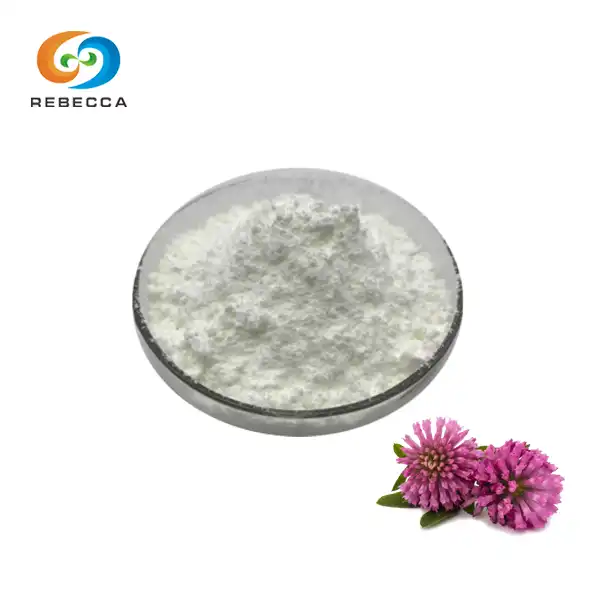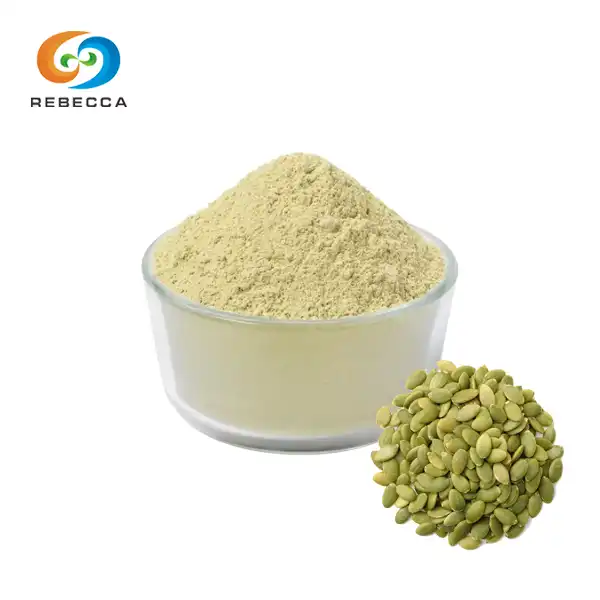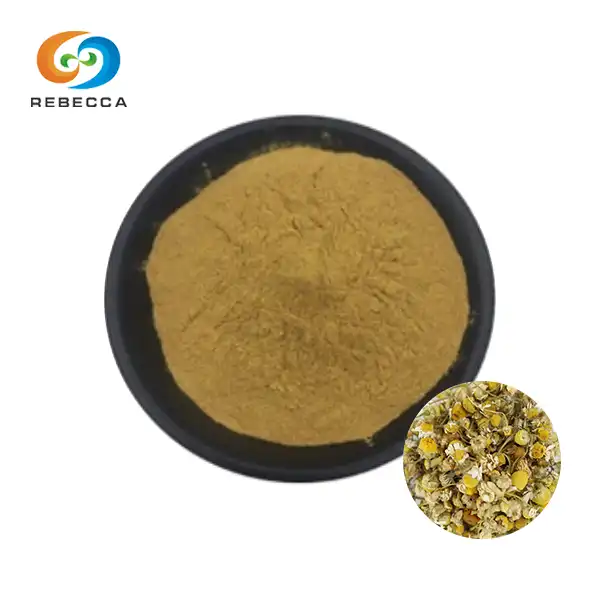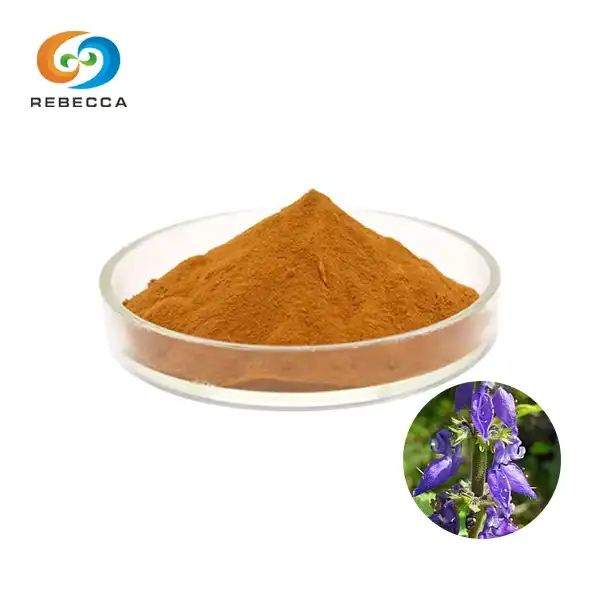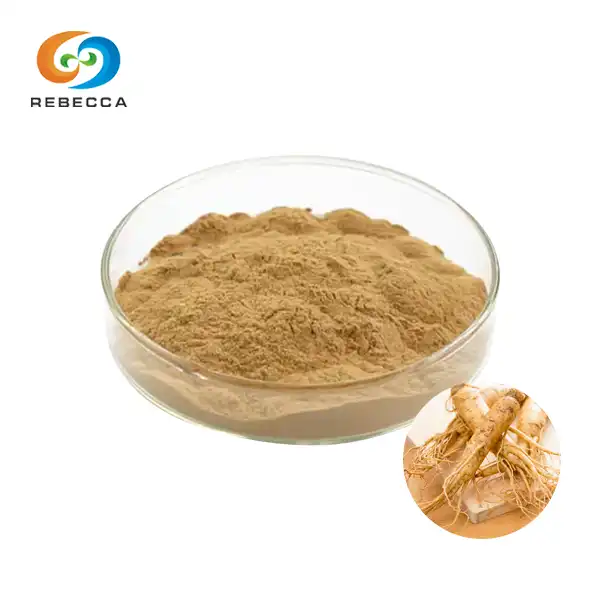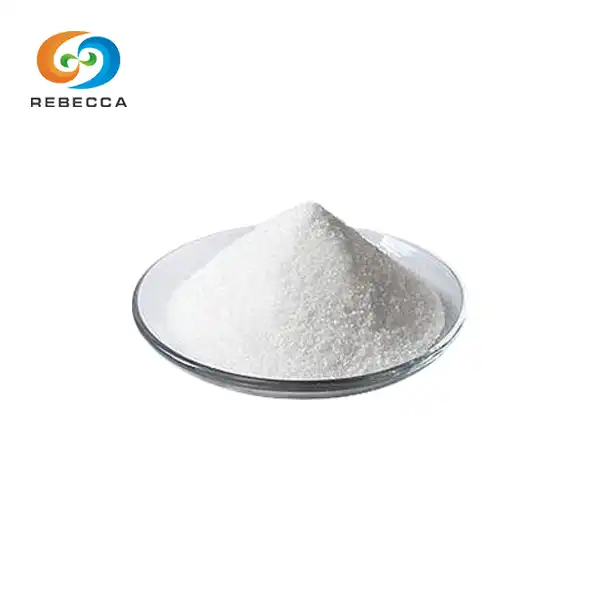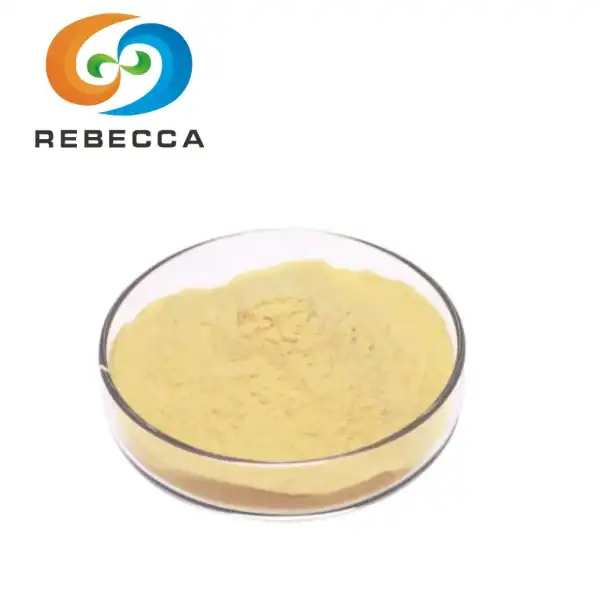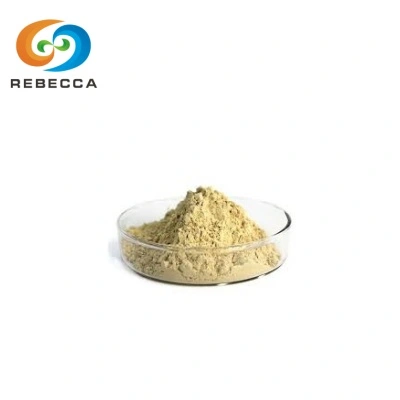Siberian Ginseng Extract Uses
Siberian ginseng extract, derived from the Eleutherococcus senticosus plant, has been a staple in traditional medicine for centuries. This powerful adaptogenic herb has gained popularity in recent years due to its potential health benefits and versatile applications. In this comprehensive guide, we'll explore the traditional uses of siberian ginseng root extract, its role in modern medicine, and its emerging applications in skincare.

What Are the Traditional Uses of Siberian Ginseng Extract?
Siberian ginseng, also known as eleuthero, has a rich history in traditional Chinese medicine and Russian folk remedies. For thousands of years, it has been revered for its ability to enhance overall health and vitality. The renowned herbalist Li Shih Chen, in his "Great Catalogue of Medicinal Herbs," described Siberian ginseng as a superior herb capable of invigorating physical energy, regulating vigor, strengthening the skeleton and tendons, and increasing one's ambition.
Traditionally, Siberian ginseng root extract has been used for various purposes:
- Boosting Energy and Stamina: As an adaptogen, Siberian ginseng has been used to combat fatigue and increase physical endurance. It was particularly popular among laborers and athletes seeking to enhance their performance and recovery.
- Stress Reduction: Traditional practitioners believed that Siberian ginseng could help the body adapt to stressful situations, both physical and mental. It was often prescribed to individuals experiencing chronic stress or those working in high-pressure environments.
- Immune System Support: In traditional medicine, Siberian ginseng was used to strengthen the body's natural defenses against illnesses. It was often administered during cold and flu seasons to prevent infections.
- Cognitive Function: Ancient healers used Siberian ginseng to improve mental clarity, focus, and memory. It was believed to enhance overall cognitive performance, especially in older adults.
- Longevity and General Well-being: Siberian ginseng was considered a tonic herb that could promote overall health and potentially extend lifespan when consumed regularly.
These traditional uses laid the foundation for modern research and applications of Siberian ginseng extract. As we delve deeper into contemporary scientific studies, we'll see how many of these ancient beliefs have been validated by modern medicine.

How Is Siberian Ginseng Extract Used in Modern Medicine?
Building upon its traditional uses, modern medicine has conducted extensive research on Siberian ginseng extract, uncovering a wide range of potential health benefits. While more studies are needed to fully understand its effects, current research suggests several promising applications:
- Stress Management: Scientific studies have shown that Siberian ginseng root extract may help regulate the body's stress response by modulating cortisol levels. This can lead to improved resilience to both physical and psychological stressors.
- Enhanced Athletic Performance: Some research indicates that Siberian ginseng extract may improve endurance and recovery in athletes. It's believed to enhance oxygen utilization and reduce fatigue during intense physical activity.
- Immune System Modulation: Modern studies have supported the traditional use of Siberian ginseng for immune support. The extract has been shown to stimulate the production and activity of various immune cells, potentially enhancing the body's ability to fight off infections.
- Cognitive Function: Recent research suggests that Siberian ginseng root extract may have neuroprotective properties and could potentially improve cognitive function, particularly in areas such as memory and concentration.
- Blood Sugar Regulation: Some studies have indicated that Siberian ginseng root extract may help regulate blood sugar levels, making it a potential complementary treatment for diabetes management.
- Cardiovascular Health: Preliminary research suggests that Siberian ginseng extract may have beneficial effects on heart health by improving blood circulation and potentially lowering blood pressure.
- Menopause Symptom Relief: Some women have reported relief from menopausal symptoms, such as hot flashes and mood swings when using Siberian ginseng extract powder.
It's important to note that while these potential benefits are promising, Siberian ginseng extract should not be used as a replacement for prescribed medications or professional medical advice. Always consult with a healthcare provider before incorporating any new supplement into your routine, especially if you have existing health conditions or are taking medications.

What Are the Skincare Applications of Siberian Ginseng Extract?
In recent years, the beauty industry has taken notice of Siberian ginseng extract's potential benefits for skin health. This adaptogenic herb is now being incorporated into various skincare products due to its unique properties:
- Anti-Aging Effects: It is rich in antioxidants, which can help protect the skin from free radical damage. This may contribute to reducing the appearance of fine lines and wrinkles, promoting a more youthful complexion.
- Improved Skin Circulation: The extract's ability to enhance blood circulation may translate to improved skin health. Better circulation can lead to a brighter, more radiant complexion and may help deliver nutrients more efficiently to skin cells.
- Skin Barrier Support: Some studies suggest that Siberian ginseng root extract may help strengthen the skin's natural barrier function. This can lead to improved hydration and protection against environmental stressors.
- Stress-Related Skin Issues: Given its adaptogenic properties, it may help mitigate the effects of stress on the skin. This could potentially help with stress-related skin conditions such as acne or eczema flare-ups.
- UV Protection: While not a replacement for sunscreen, some research indicates that Siberian ginseng root extract may offer some level of protection against UV-induced skin damage when used in conjunction with proper sun protection.
- Skin Tone Evening: Some skincare products incorporate Siberian ginseng root extract for its potential to help even out skin tone and reduce the appearance of hyperpigmentation.
- Cellular Renewal: The extract may help stimulate skin cell renewal, potentially leading to a fresher, more vibrant appearance.
As with any skincare ingredient, it's important to patch test new products containing Siberian ginseng extract and to consult with a dermatologist if you have sensitive skin or specific skin concerns.

Siberian Ginseng Extract Supplier
Siberian ginseng extract offers a wide range of potential benefits, from its traditional uses in boosting energy and reducing stress to its modern applications in medicine and skincare. As research continues, we may uncover even more ways this versatile herb can contribute to health and wellness.
Rebecca Bio-Tech is a professional manufacturer of Siberian ginseng extract in China, producing 24 tons of the extract annually. For more product information, please contact us at information@sxrebecca.com to request samples, and detailed specifications or to discuss your custom requirements.
References
- Li, S. C. (1578). Great Catalogue of Medicinal Herbs.
- Kimura, Y., & Sumiyoshi, M. (2004). Effects of various Eleutherococcus senticosus cortex on swimming time, natural killer activity and corticosterone level in forced swimming stressed mice. Journal of Ethnopharmacology, 95(2-3), 447-453.
- Panossian, A., & Wikman, G. (2010). Effects of adaptogens on the central nervous system and the molecular mechanisms associated with their stress—protective activity. Pharmaceuticals, 3(1), 188-224.
- Kormosh, N., Laktionov, K., & Antoshechkina, M. (2006). Effect of a combination of extract from several plants on cell-mediated and humoral immunity of patients with advanced ovarian cancer. Phytotherapy Research: An International Journal Devoted to Pharmacological and Toxicological Evaluation of Natural Product Derivatives, 20(5), 424-425.
- Lee, D., et al. (2012). Neuroprotective effects of Eleutherococcus senticosus bark on transient global cerebral ischemia in rats. Journal of Ethnopharmacology, 139(1), 6-11.
